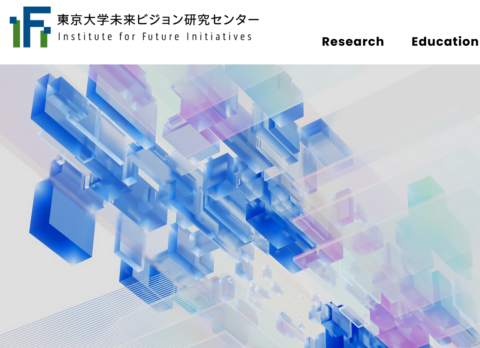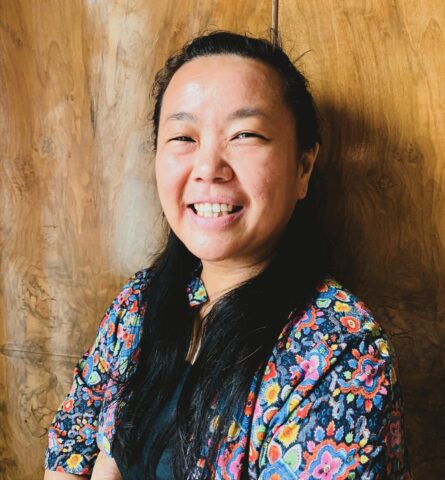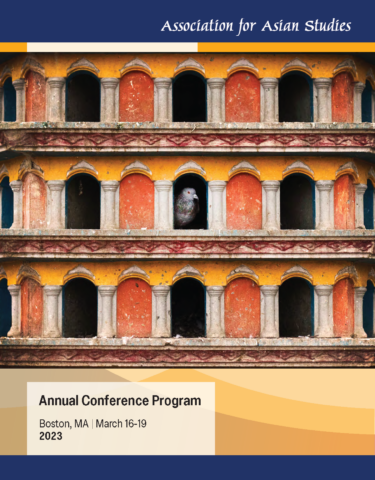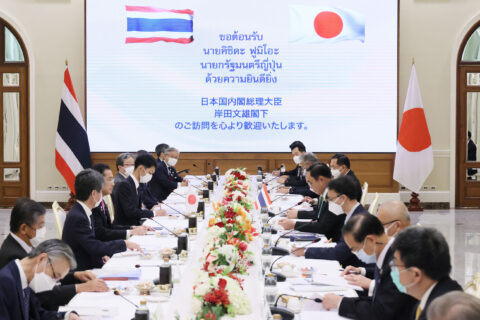Veranstaltungen und Aktivitäten
Celia Spoden invited commentator at University of Tokyo’s ‚Robot (inter)faces‘ panel discussion

DIJ social scientist Celia Spoden will participate in the event ‚Robot (inter)faces: Understanding and mapping robot/avatar faces‘, hosted by the University of Tokyo’s Institute for Future Initiatives as invited commentator and panelist. Adopting media philosophy, ethnographical approaches and STS to robots, the event will explore the features and situated performances of robot and avatar’s faces. It takes place on April 11 at the University’s Ito International Research Center, is co-hosted by the JST Moonshot R&D Program „Cybernetic being“ Project and supported by the Australia-Japan Foundation. Details and registration information here
DIJ talk discusses regulations and future of Artificial Intelligence

How positive or negative is the future of Artificial Intelligence (AI)? Despite its potential, most people are worried about the impact AI may have on their lives, including discrimination and unemployment. This talk will present a novel approach to help improve regulation of AI to become more inclusive and to avoid future harms from emerging technologies. To this end it utilizes arts-based research methods such as speculative design and Science Fiction prototyping. Its use in other disciplines has already shown its potential in helping policy discussions to become more inclusive towards underrepresented stakeholder communities and alternative perspectives. After presenting her research and recent findings from speculative design workshops in Japan and Taiwan, the speaker will invite the audience to actively take part in a speculative design exercise to experience how thinking about the future may help us make better decisions in the present. Details and registration here
Online DIJ talk by Chika Watanabe on Patchwork Ethnography

Against the background of neoliberal university labour conditions, expectations of work-life balance, and environmental concerns, long-term fieldwork is becoming difficult for researchers using ethnographic methods. Gökçe Günel and Chika Watanabe propose ‘patchwork ethnography’ to consolidate the innovations that are already happening in ethnographic research out of necessity—to balance family and research, for example—but that remain black boxed. Patchwork ethnography begins from the acknowledgement that recombinations of ‘home’ and ‘field’ have perhaps always existed in fieldwork practices. However, the interpenetration of the personal with the professional is often deemed illegitimate in research practices. This talk presents patchwork ethnography as a provocation to open spaces of honest conversation so that models other than uninterrupted fieldwork can become recognized methodological approaches, while still upholding the importance of long-term commitments, language proficiency, and contextual knowledge. Details and registration here
Chika Watanabe, University of Manchester
DIJ hosts panel discussion ‚Human-Machine Interaction and Responsibility‘

Rapid advancements in new technologies, such as robots and AI, have brought about new social practices and realities. They come with manifold expectations and concerns, which mirror our understanding of what it means to be human. Drawing on perspectives from technological development, psychology, philosophy, social sciences, literature and art studies, the panel discussion ‚Human-Machine Interaction and Responsibility‘ will tackle psycho-social aspects of human-machine interaction and their consequences, as well as ethical, legal, and socio-political implications. One important issue will be people’s rights and responsibilities when collaborating with machines and AI: Who will be credited for achievements, and who will be held responsible for tragic accidents? How does responsibility depend on the context and type of interaction between humans and machines? How should robots or AI be designed to be beneficial for society? The event takes place on March 27, on-site only at the DIJ, and will be moderated by DIJ’s Celia Spoden. Details and registration information here
Conference presents results from DIJ’s research cluster on ‚Local Communities‘

Six former and current DIJ researchers who have contributed to the DIJ’s research cluster The Future of Local Communities in Japan – Risks and Opportunities in the Face of Multiple Challenges will give presentations on their research results at the conference ‚Local Self-organization and Civic Engagement in Regional Japan‘ on March 7, 2023, on-site only at the DIJ. Topics covered include social welfare provision, volunteerism, regional theatre, fishery cooperatives, and shifting state-society relations. They will be complemented with presentations by prominent Japanese scholars in the field. The conference will close with a book break introducing Rethinking Locality in Japan (eds. Sonja Ganseforth & Hanno Jentzsch, Routledge 2022). Details and registration here
DIJ researchers at AAS conference in Boston

DIJ historian David M. Malitz and social scientist Nora Kottmann will present results from their latest research at the upcoming annual conference of the Association for Asian Studies (AAS) in Boston. David will give his paper „Written out of History: Japanese-Siamese (Thai) Relations Prior to the 1932 Revolution“ in the panel Hedging Towards Hegemony: Deconstructing the Myth of the „Bamboo Diplomacy“ in Thailand. Nora is organizer and chair of the panel Privileged transnational families in and from East Asia: Gendered practices, gendered spaces? Her paper „(Un)Voluntarily trapped in heteronormativity: Familial decision making of transnational professionals in Tokyo“ analyzes how and where transnational corporate professionals and their families ‘do family’ from a gender perspective.
Franz Waldenberger chairs panel on ‚Digital and green transformation‘

DIJ director Franz Waldenberger will chair the panel ‚Digital and green transformation‘ at the two-day conference Reforming Capitalism, Going Digital and Going Green: Does Japan Hold Answers? organized by Oxford University’s Nissan Institute of Japanese Studies. Its goals are to go behind the international headlines on inflation, cost of living crises, and interest rates to ask what can we learn from the Japanese experience of our shared challenges. Topics include productivity and investment, ‚leveling up‘, digital and green transformation, and the common quest to reform capitalism and build a new ‚growth model‘. The conference brings together sixteen experts from Japan and Europe, across the academic, business, and political spectrum to help develop shared solutions to our shared problems. It takes place on February 17-18, 2023 at Saïd Business School in Oxford. Details and programme here
Online roundtable on Japanese-Thai Defense Relations in the Indo-Pacific Era

In December 2022, the Japanese government announced major changes to its defense policies, including a new National Security Strategy. As a founding member of ASEAN enjoying long and close relations with Japan, Thailand offers an interesting case study of Japan’s defense diplomacy in the region. Since 2005, Japan has been participating in annual US-Thai hosted multinational military exercises. At the same time, Thailand has also strengthened its defense relationship with China. Nevertheless, a bilateral defense agreement was signed in May 2022 during Prime Minister Kishida’s visit to Thailand. This online roundtable will explore Japanese-Thai defense relations in the light of Japan’s new National Security Strategy, of the Japanese-Thai bilateral defense agreement, and of the closer relations between Thailand and China from Japanese and Thai perspectives. Moderated by DIJ’s David M. Malitz, it features Saya Kiba (Kobe City University of Foreign Studies/National Defense Academy of Japan) and Kitti Prasirtsuk (Thammasat University, Bangkok). Details here

















 Open Access
Open Access 
